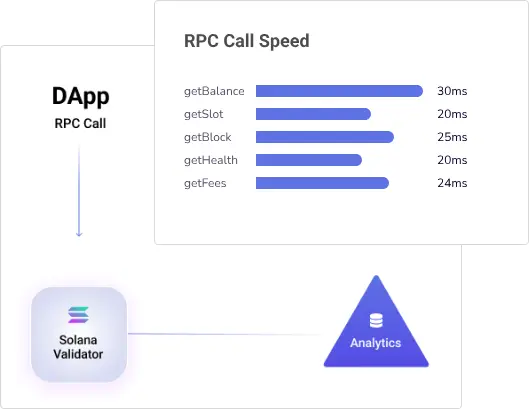Welcome to the world of Web3, where cryptocurrencies, blockchain, and a unique culture converge. Entering the world of Web3 can be both thrilling and overwhelming, especially when faced with the seemingly cryptic language used by enthusiasts. Don't worry if you feel they sound like some secret codes, we are here to unravel their meaning. In this article, we are going to introduce [RPC].
Remote Procedure Call (RPC) is a protocol that one program can use to request a service from a program located on another computer in a network without needing to understand the network's details. RPC uses a client-server model where the requesting program is the client, and the program providing the service is the server. In the context of Solana and other blockchain networks, RPC allows clients (like wallets, dApps, and users) to communicate with the blockchain's nodes (servers) to perform various actions, such as submitting transactions, querying account balances, or reading contract states.
Solana is a high-performance blockchain platform renowned for its fast transaction speeds and high throughput capabilities. It achieves this through a combination of innovative technologies, including Proof of History (PoH), which helps maintain a secure and efficient decentralized network. Solana supports a wide range of applications, from decentralized finance (DeFi) to non-fungible tokens (NFTs), making it a popular choice for developers and users alike.
RPC in Solana: Bridging Users and the Blockchain
In Solana, RPC plays a pivotal role in interfacing between the end-users or applications and the blockchain's data and functionalities. Through RPC calls, users can interact with the Solana network without directly dealing with the underlying blockchain complexities. This makes RPC a fundamental component of the Solana ecosystem, enabling the seamless operation of decentralized applications and services.
How Does RPC Work in Solana?
When a user or application wishes to interact with the Solana blockchain, it sends an RPC request to a Solana node. This request specifies the procedure or function the client wants to execute on the server, along with any necessary arguments. The Solana node processes the request, executes the specified function, and returns the result to the client. This process allows for efficient, direct communication with the blockchain, facilitating various operations such as:
●Querying the current state of the blockchain or a specific account
●Submitting transactions to be processed by the network
●Retrieving the history of transactions or account changes
Examples of RPC in Action
A user wants to send SOL from their wallet to another. The wallet application uses an RPC call to communicate this transaction to the Solana network, where it's validated and processed.
A DeFi application needs to display the current SOL balance of a user's account. It makes an RPC call to the Solana network, requesting the latest balance information for that account.
The Importance of RPC in Solana
RPC's significance in Solana cannot be overstated. It provides the essential link between the blockchain and the broader world, allowing users and developers to build and interact with applications on the network efficiently. Without RPC, the accessibility and usability of blockchain technologies would be significantly hindered, limiting the potential for innovation and adoption.
RPC in Solana represents a crucial mechanism for facilitating communication and transactions within the blockchain ecosystem. By allowing for straightforward interactions with the network, RPC enables the rich, dynamic landscape of applications and services that define the Solana platform. For beginners venturing into the world of Web3, understanding RPC and its role in blockchain technology is a foundational step towards navigating and contributing to the decentralized web.
